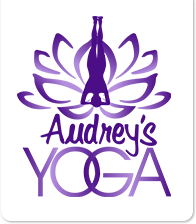Yoga as an Active Recovery Workout?

Recently there has been a noticeable rise in the fitness world of people doing cross training. Doing cross training activities like high intensity cardio intervals, strength training with various weights for specific repetitions or time, along with increased repetitions with body weight exercises all in the name of becoming “more fit”. Along with this trend, I have read in many blogs and workout regimens that suggest to include yoga as the “active recovery” workout of the week. Other active recovery workouts prescribed are a long walk, hiking hills at a slow pace, or foam rolling.
As a yoga practitioner and instructor, I love that the fitness world is promoting yoga as a workout, but not all yoga is created equal. For this reason, the style of yoga should be stated when suggesting yoga as a recovery workout. An active recovery workout is defined as a workout that is easier than you are normally used to doing during the week in volume and intensity. Yes, there are some styles of yoga that would be wonderful for a post workout or recovery day routine. Restorative yoga, Yin yoga, or a slower Hatha yoga class are great recovery options. These classes would be wonderful for a person who cross trains to incorporate into their “active recovery” workouts to balance the strength with flexibility and endurance with stamina.
On the other side of the spectrum, there are more dynamic styles of yoga such as Power, Vinyasa, Ashtanga, and Jivamukti. These styles would not be considered “recovery” classes to the devoted yogi. These classes are designed to not only work on flexibility but also muscular strength and stamina through dynamic moves. They can be compared to High Intensity Interval Training (HIIT) exercises and strength training exercises. These would not be appropriate “recovery exercises” for a yoga novice, regardless of their physical fitness level.
It makes my heart smile when my hard core runner, cyclist, or weight lifting friends ask for yoga routines to complement their workouts. They are starting to understand the benefits yoga has to offer them in their sport of choice. Yoga helps promote flexibility, strength, balance, and endurance which in return helps prevent injuries. Not only are there the physical benefits of increased the range of motion of joints and strength and efficiency of muscles, there are the mental benefits of a yoga practice that allow for increased body awareness and mental will power to be able to complete the most grueling workout or competition.
More and more people are discovering yoga. I do hope that the fitness industry will start to take into consideration the various styles and types of yoga rather than lumping them all into one word of “yoga for active recovery days”. Just as I do when I supplement strength training and cardio into my weekly program to enhance my yoga journey. I feel everyone's life journey will be longer and more fulfilling by combining the two worlds.




